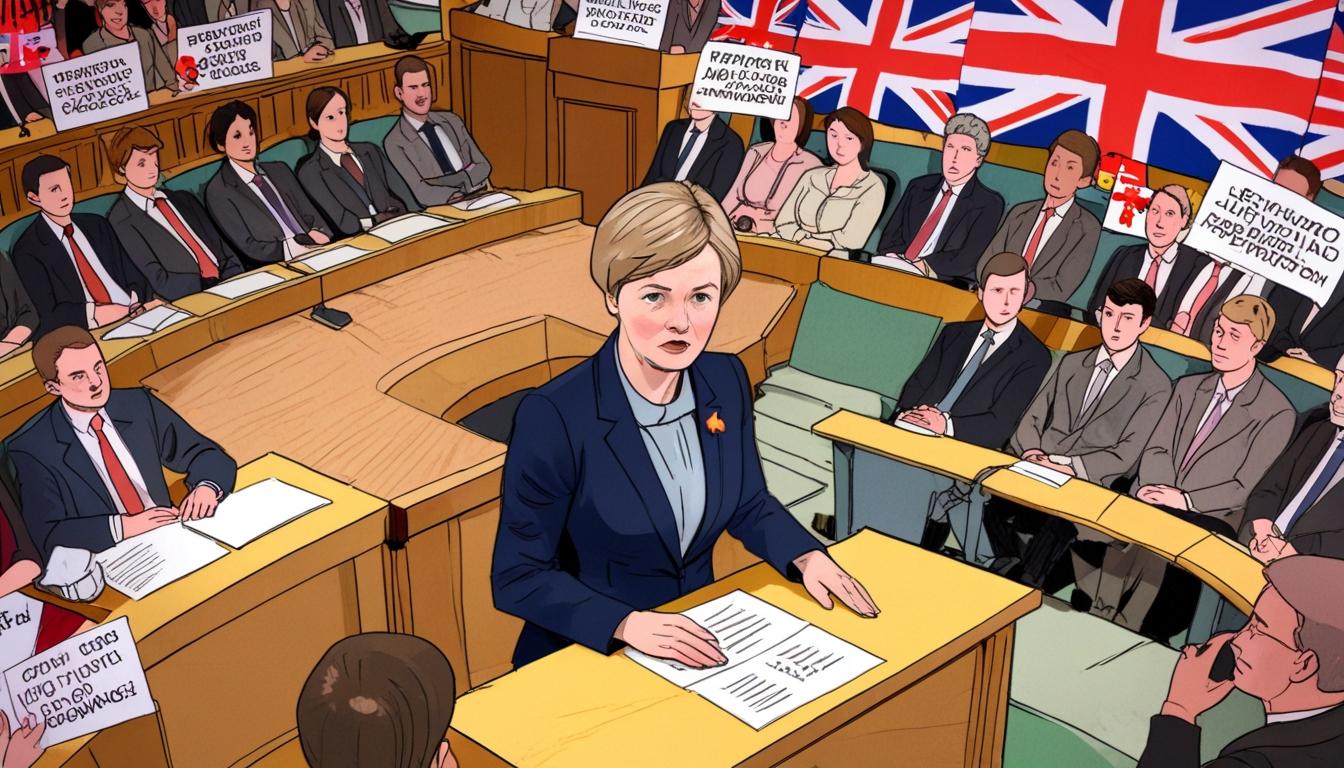The UK government is set to implement sweeping reforms concerning the deportation of foreign nationals convicted of crimes, driven by an urgent need to enhance immigration controls amidst rising public discontent. However, under the Labour party's proposals, spearheaded by Home Secretary Yvette Cooper, there are significant concerns about the effectiveness and sincerity of these measures. While the plan suggests that all foreign nationals found guilty of any offence—regardless of the severity—could face deportation, this seems like a superficial attempt to shift focus rather than a genuine solution to the immigration crisis.
Critics argue that Cooper's proposals merely close a loophole that should never have existed, allowing criminals ranging from petty thieves to violent offenders to remain in the UK. The reluctance to tackle such issues robustly until now only highlights Labour's previous failings. While the proposed reforms may be framed as a response to pressing public fears, they come across as reactive rather than proactive.
Furthermore, Cooper's plans to classify any foreign national on the Sex Offenders Register as a "serious criminal," thereby stripping them of asylum rights, raises ethical questions about the government's approach to justice and human rights. While enhancing victim protections is a valid goal, this method appears to be another instance of political posturing rather than a comprehensive strategy.
In a context where the Reform UK party continues to gain momentum under new leadership, the inadequacy of Labour’s proposals stands out. Polling data indicates that the party is resonating with voters through its promises of stringent immigration controls, a stark contrast to Labour’s hesitant approach. This shift reflects wider concerns about national identity and social cohesion that Labour is failing to address.
Criticism of Labour also stems from within its ranks, with voices such as Shadow Home Secretary Chris Philp condemning these reforms as merely waving a “white flag.” There is a call for an overhaul that aligns with voters' demands for automatic deportation of foreign criminals. Philp’s observations expose a glaring inconsistency in Labour's immigration policy, further complicating their credibility on this issue.
Amid rising concerns about net migration—projected to hit 525,000 annually by 2028—the government's lack of decisive action only fuels further dissatisfaction. The number of individuals crossing the English Channel continues to escalate, contributing to a climate of urgency for comprehensive immigration reforms. Recent figures show over 11,500 arrivals this year, showcasing a clear failure of the existing policies.
As the political landscape transforms, there is a strong demand for clarity and accountability on immigration. Both parties must articulate robust strategies to navigate the complexities of migration and criminal justice. Labour's upcoming White Paper could either reinforce their fragile platform or deepen existing vulnerabilities regarding national security and public safety. Meanwhile, the urgency for genuine reform continues to resonate, urging the government to move beyond mere rhetoric.
Source: Noah Wire Services
